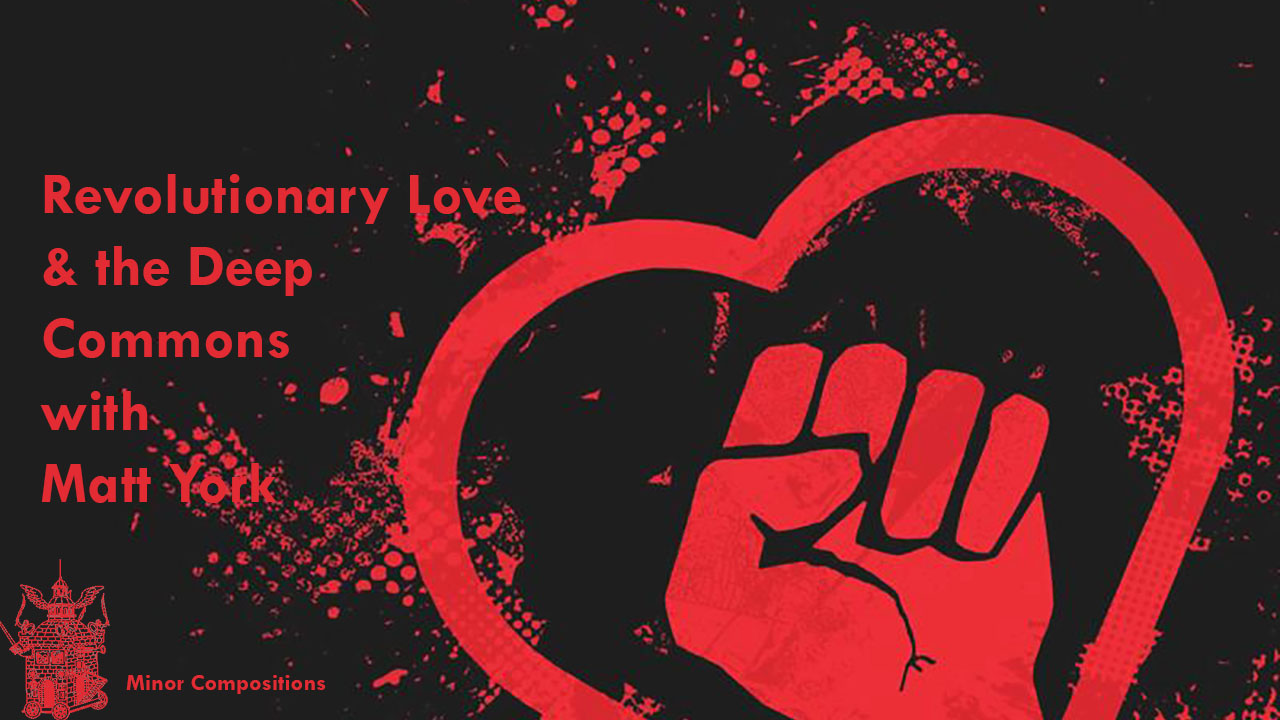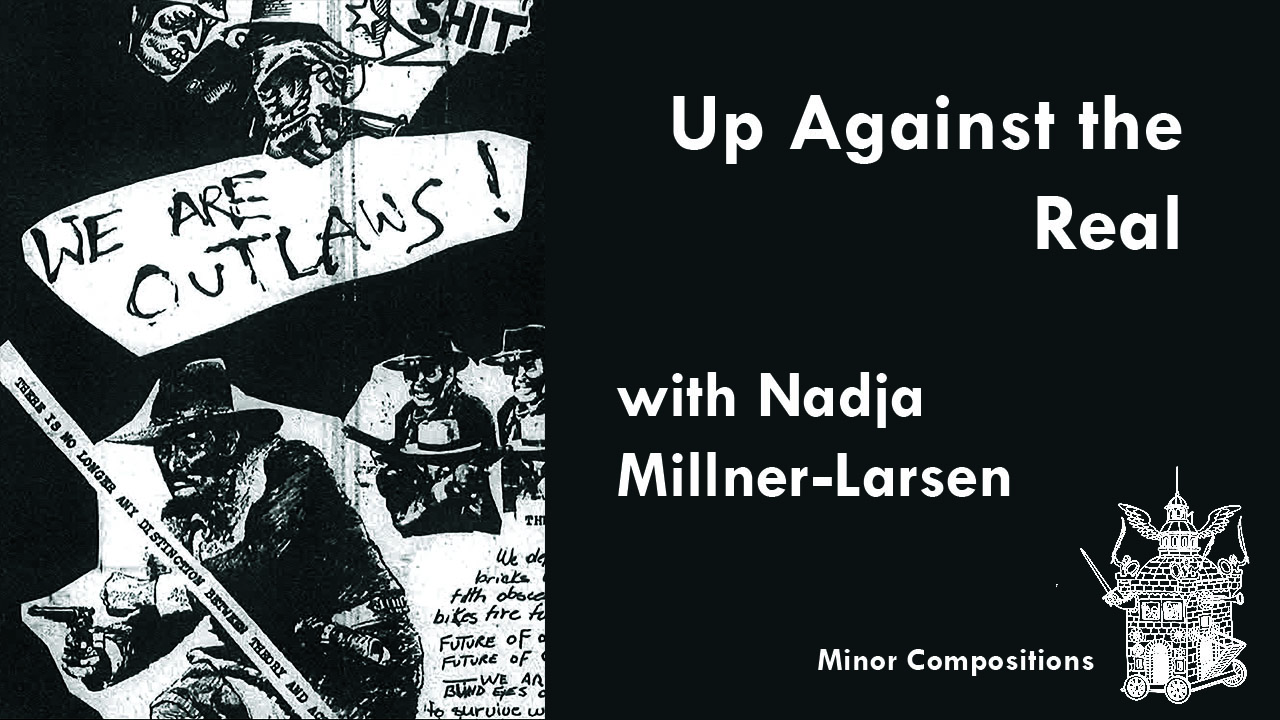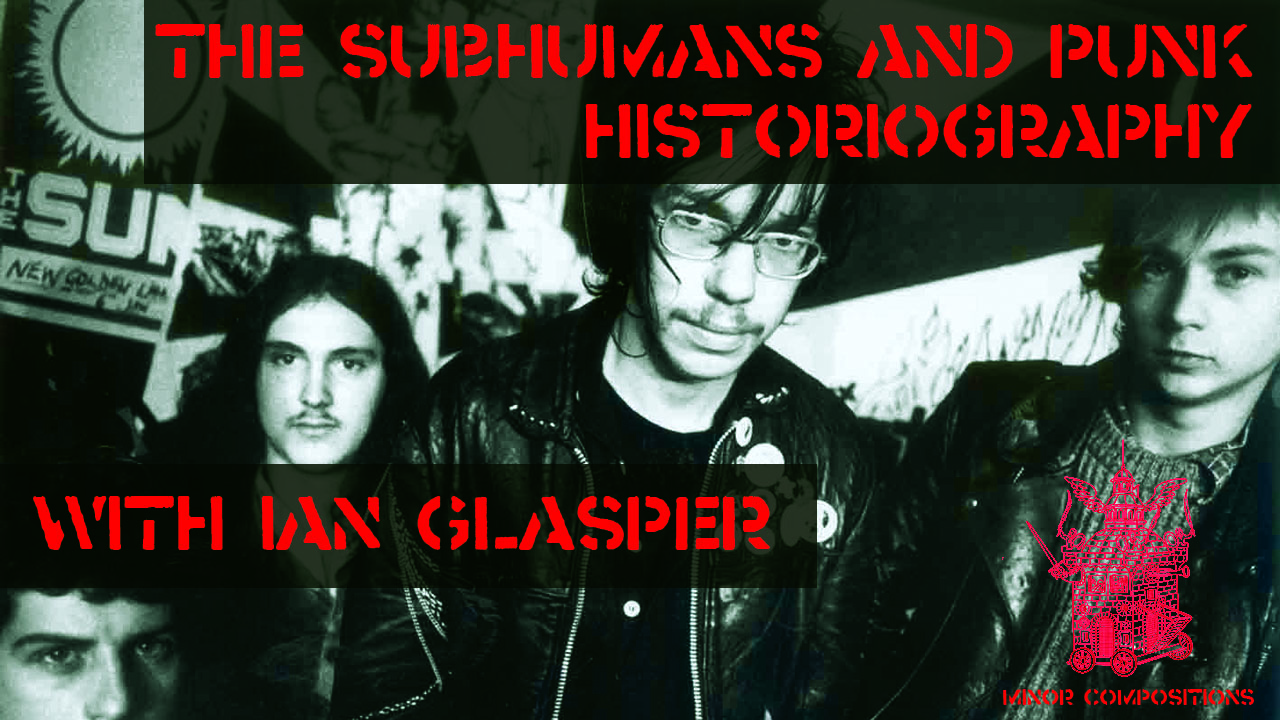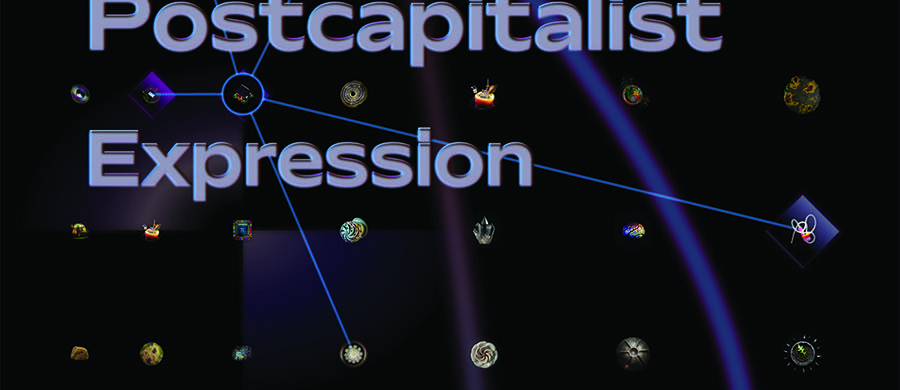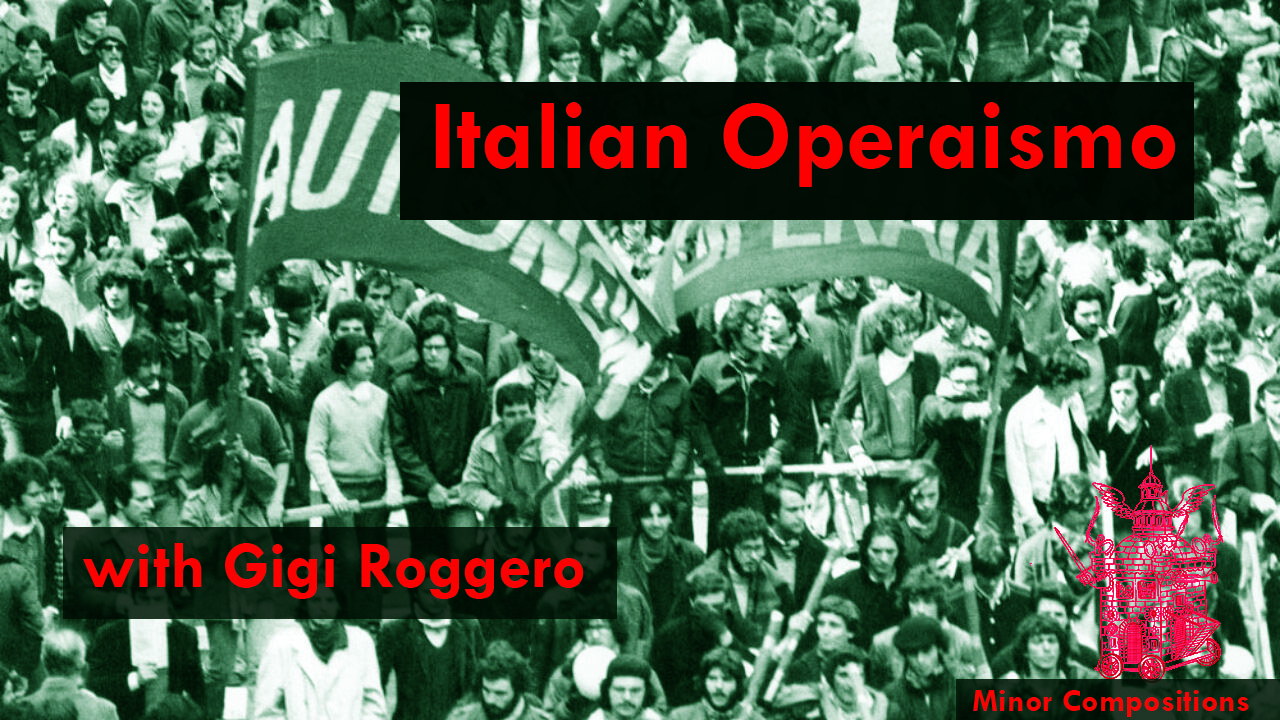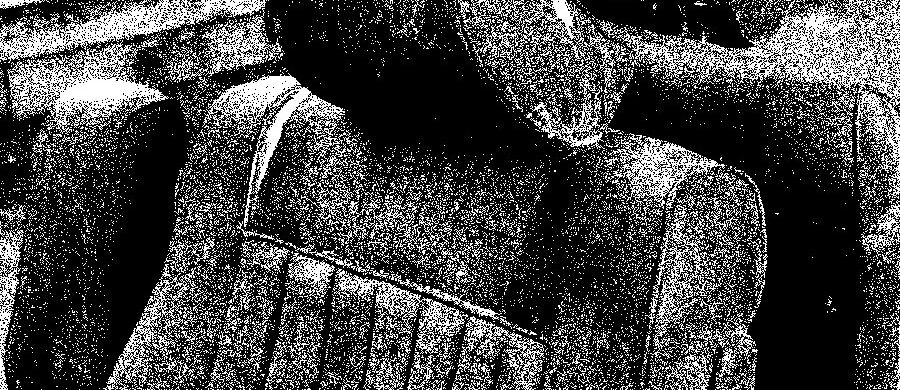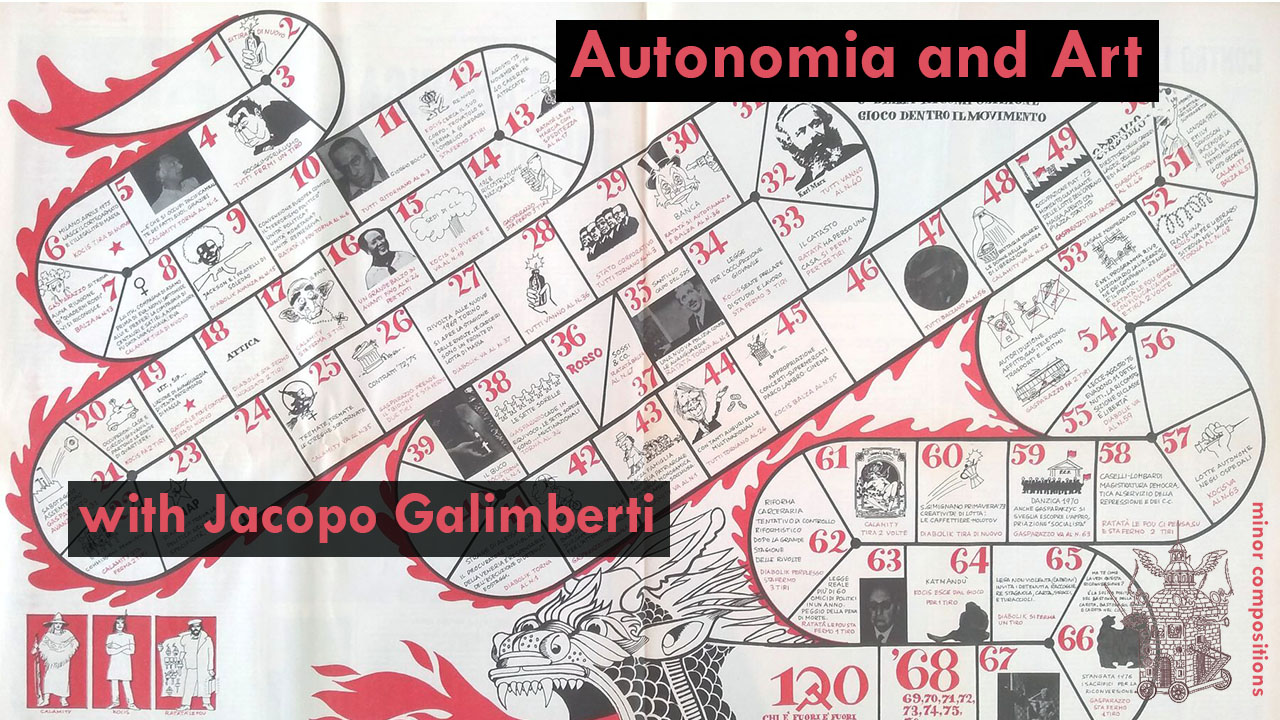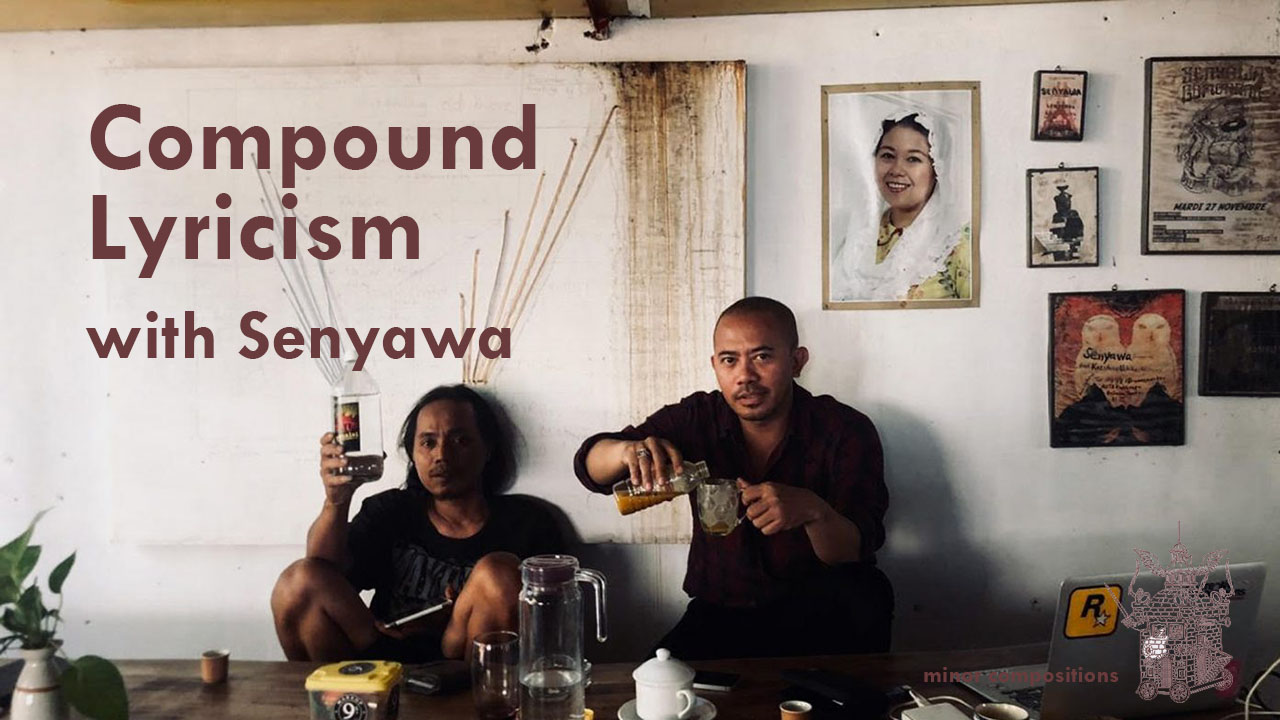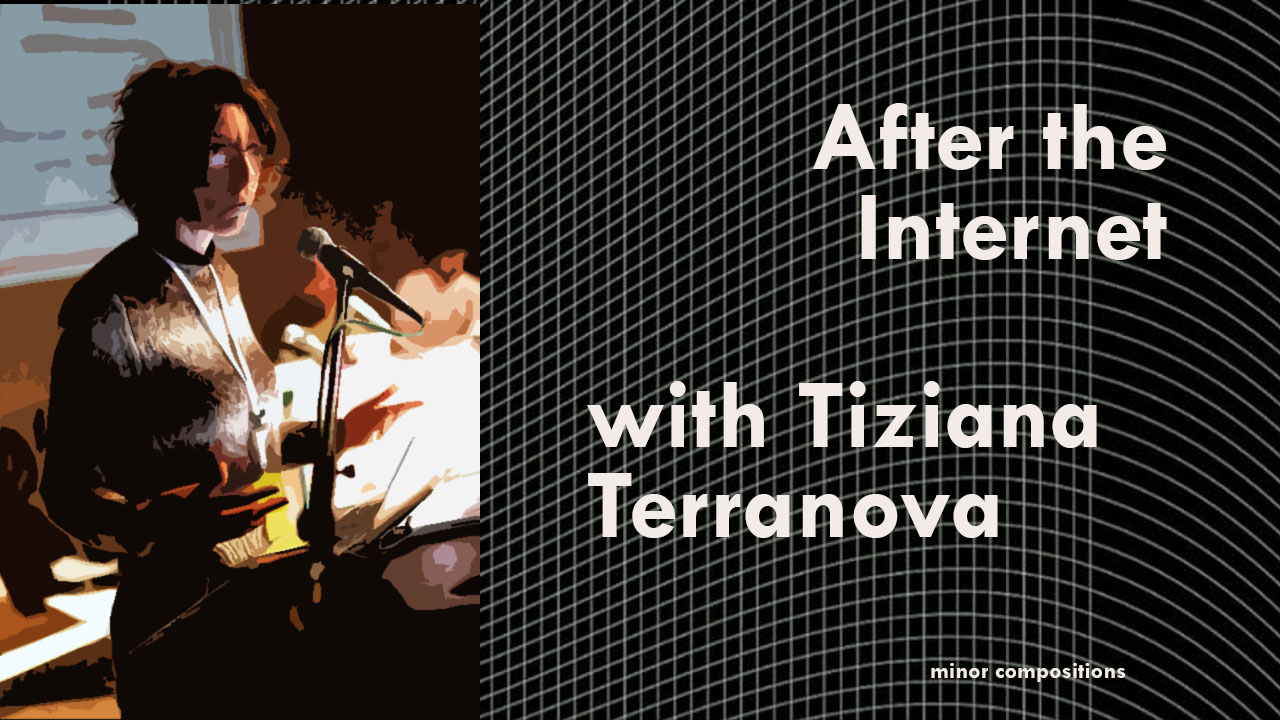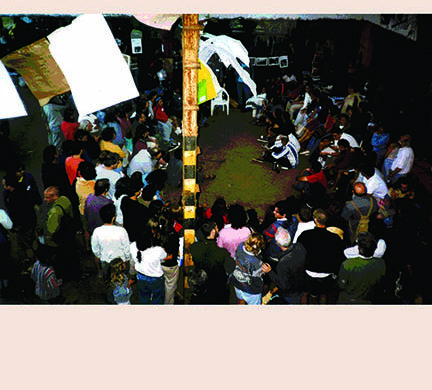-

Revolutionary Love & the Deep Commons
Minor Compositions Podcast Episode 14: Revolutionary Love & the Deep Commons with Matt York For this episode we talk with Matt York about his book Love and Revolution: A politics for the Deep Commons “Based on award-winning research, Love and Revolution brings classical and contemporary anarchist thought into a mutually beneficial dialogue with a global…
-

Up Against the Real
Minor Compositions Podcast Episode 13: Up Against the Real with Nadja Millner-Larsen For this episode we talk with Nadja Millner-Larsen about her book Up Against the Real: Black Mask from Art to Action. “With Up Against the Real, Nadja Millner-Larsen offers the first comprehensive study of the group Black Mask and its acrimonious relationship to…
-

The Subhumans & Punk Historiography
Minor Compositions Podcast Episode 12: The Subhumans & Punk Historiography with Ian Glasper For this episode we talk with Ian Glasper about his book Silence Is No Reaction: Forty Years of Subhumans. In the conversation we cover broader issues of ‘punk historiography’ and documenting more marginal musical, artistic, and political milieus that one is a…
-

Protocols for Postcapitalist Economic Expression
Protocols for Postcapitalist Economic Expression. Agency, Finance and Sociality in the New Economic Space Dick Bryan, Jorge Lopez and Akseli Virtanen What would an Internet native economic system look like? Could economic power be systematically shared amongst individuals and their self-defined groups, with no central economic authority? And could that system secure collectively defined social…
-

Italian Operaismo
Minor Compositions Podcast Episode 11: Italian Operaismo with Gigi Roggero This episode of the Minor Compositions podcast is recorded as part of the Ultradependent Public School exhibition at BAK. For this episode we are talking with Gigi Roggero about his book Italian Operaismo: Genealogy, History, Method. In this conversation we cover a range of topics…
-

On Birds & Kitchen Tables
On Birds & Kitchen Tables: Conversations of/in the Undercommons “The weapon of theory is a conference of the birds. The kitchen table is its public and its publisher.” – Stefano Harney & Fred Moten In the ten years since it was published, one of the most striking things about The Undercommons as a text was…
-

Autonomia and Art
Minor Compositions Podcast Episode 10: Autonomia and Art with Jacopo Galimberti This episode is a discussion with Jacopo Galimberi about this book Images of Class: Operaismo, Autonomia and the Visual Arts (1962–1988) “During the 1960s and 1970s, Workerism and Autonomia were prominent Marxist currents. However, it is rarely acknowledged that these movements inspired many visual…
-

Compound Lyricism with Senyawa
Minor Compositions Podcast Episode 9: Compound Lyricism with Senyawa This episode intersperses a performance by experimental Indonesian doom folk metal band Senyawa (recorded in Folkestone in April 2022) with a discussion with their vocalist and lyricist Rully Shabara. The interview covers topics including his approach to writing lyrics, use of allegory and imagery, and how…
-

After the Internet
Minor Compositions Podcast Episode 8: After the Internet with Tiziana Terranova For this episode we have a discussion with Tiziana Terranova about her recently released book After the Internet: Digital Networks between Capital and the Common. We cover a range of topics including the shift from the internet as open network to the rise of…
-

Hypothesis 891
Hypothesis 891. Beyond the Roadblocks Colectivo Situaciones & MTD Solano Translated by Dina Khorasanee & Liz Mason-Deese Important collective theorization on the meaning of the 2001 Argentinean uprising In 2001 a mass popular uprising overthrew the neoliberal government in Argentina: thousands upon thousands of people, both in organizations and on their own, took to the…
